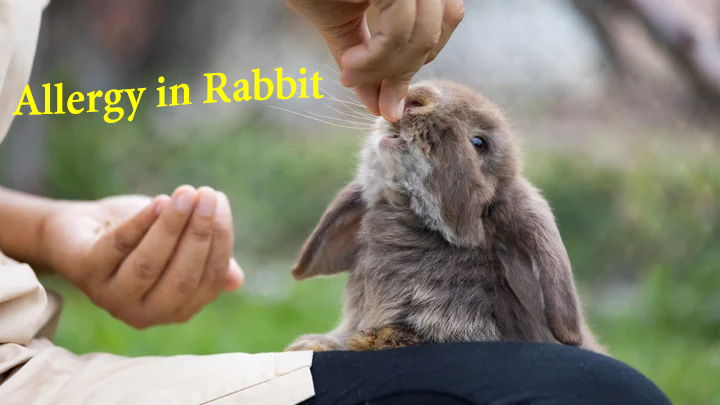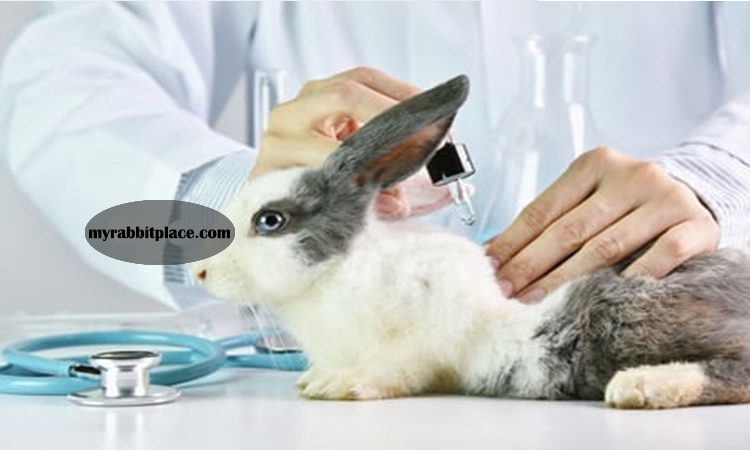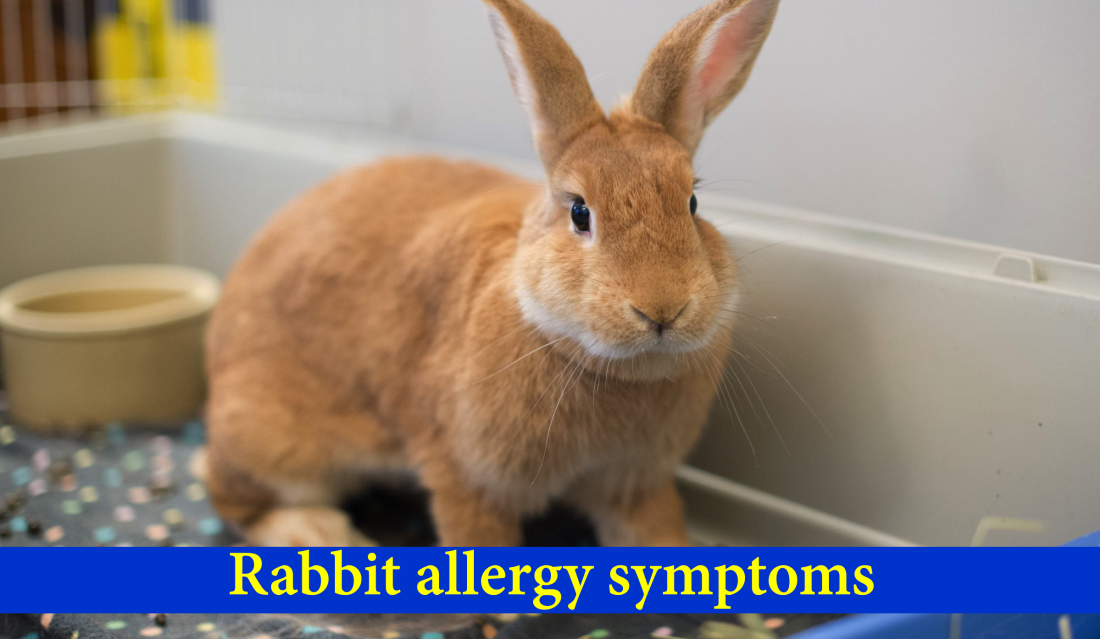When there is a pet rabbit in your house and you want to know if your rabbit has an allergy or not. Well, several rabbit allergens have been identified in its fur, saliva, urine, dander or dust. Those who are allergic to them should take seriously these allergens such as dust mites which could be very dangerous.
An allergic reaction to rabbits needs to be confirmed by an allergist since one may have hay fever symptoms with runny nose and sneezing that is often triggered by exposure on dead skin cells.
Though it might distress some people to find out that their dear bunnies cause health problems such as asthma characterized by wheezing and shortness of breath – many still prefer coping with allergies rather than getting rid of pets they love most.
If someone decides on living together with a bunny despite having allergy symptoms then there are ways that can help minimize the effect.
Read on to learn about the symptoms, causes, risk factors, complications, and prevention of rabbit allergies.
Signs that your rabbits are having allergies
One of the most common medical conditions that affect rabbits is allergy. It occurs when the rabbit’s immunity is hypersensitive to foreign substances, referred to as allergens.
These are the proteins that the body’s immune system tries to eradicate. Examples of allergens include pollen, dust, hair, and mold. The allergy can be identified in the following ways:
- The most common manifestation is itchy skin, either found in a specific skin area or all over the rabbit’s body.
- The second involves digestive issues, characterized by vomiting, diarrhea, or flatulence.
- And the last manifestation is respiratory disorders. It results in coughing, sneezing, wheezing, and a runny nose. There can also be an associated eye discharge.
Rabbits allergy signs and symptoms are categorized in the following manner:
Caused inflammations of nasal passage include;
| Sneezing | Nasal congestion |
| Itching in eyes | Frequent awakening |
| Running nose | Postnasal drip |
| Facial pressure and pain | Darkened eyes |
Also Read - How Rabbits Express Affection
Asthma-related symptoms
| Breathing problems | Trouble in sleeping |
| Tightening of chest and pain | Wheezing |
| Whistling sounds while exhaling | Coughing |

Skin symptoms
| Hives (raised and red patches over the skin) |
| Itchy skin |
| Eczema |
Causes of allergy in rabbits
Have you ever felt your rabbits are looking weak or might be suffering from hay fever? They are probably allergic to something.
Rabbits clearly show the symptoms caused by an allergy. But what are the things that cause allergies in rabbits? Let’s discuss them in detail.
An allergy occurs when your immune system reacts to any foreign substances like pollen, dust, mites, etc. The body starts producing proteins known as antibodies.
It protects us from the potential threats of invaders entering the body that make us sick and cause an infection.
Some common irritants to rabbits are:
Home cleaning products
products like aerosol spray, chlorine bleach, detergent, and dishwashing liquids These may release harmful toxins that cause severe irritations and infections in rabbits. Try to use chemical-resistant products for cleaning your home.
Cigarette smoke
Rabbits are vulnerable to secondhand smoke. You need to be careful leaving ashtrays around your bunnies, as cigarette butts pose a risk of respiratory diseases, diarrhea, salivation, and even cardiac problems.
Mites and fleas
Mites, lice, and fleas are skin parasites that can cause itchiness in rabbits. The treatment of these symptoms can be simple, but if left untreated, a minor infection can lead to serious threats in rabbits.
Strong scents
A rabbit has an excellent sense of smell, which may have positive as well as negative consequences. Their keen noses are sensitive enough that the smell of strong scents aggravates them. So, it’s recommended not to use scented chemicals around your pet and to regularly clean their hutch.
Air fresheners and fabrics
Air fresheners and fabrics are generally unsafe for rabbits. Therefore, do not use air fresheners, oil diffusers, or candles in the area where they roam. Fabrics like acrylic and rayon are easily accessible but can cause harm to your beloved bunnies. These are not nutritious. If they consume it, it can cause blockages or choking hazards in them.
Dust
The presence of too much dust can adversely affect rabbits’ health. A build-up of urine ammonia, dust, and particulate matter from an unhygienic living environment increases the chances of allergy in rabbits. The rabbits start sneezing when exposed to this.
Fireplace fumes
Fireplace fumes emitted by the smoke of a wood stove can cause allergies in rabbits. The tiny particles emitted by burning fumes contain a large number of toxins, and they can cause allergic rabbits to have shortness of breath, wheezing, and painful experiences. Hence, a fireplace should be properly maintained through ventilation and other means.
Rabbit allergy treatment
Housing for your rabbits
Mostly, you prefer keeping a rabbit in a cage if it lives indoors, or if it is housebroken, allow the rabbits to run freely in the house during the day and confine them to a cage at night.
If the rabbit feels free in your house, you can use an adjustable gate to restrict its territory in certain rooms to prevent allergens from spreading throughout your house. It’s advisable not to allow any pets to enter your bedroom or your padded and copious furniture.
You may opt for easy-to-clean, roomy wire or woodhouse cages with a wire floor that allows the waste materials to fall through a pull-out tray. It minimizes the chances of infections and allergies in rabbits.
Also, ensure to clean their cages weekly or every day with a damp cloth to remove any kind of shed fur, dander, or dirt materials to keep your rabbits in a hygienic environment.
Litter boxes for your rabbits
Since rabbits prefer to urinate and defecate in one corner of their cage, they can also use the litter box for that purpose. You can make a basic rectangular tray and place it in one corner of their cage or hutch. It will be fine for them to use it as a bathroom.
Sometimes, rabbits chew the litter; kindly ensure that the type you prefer to use is non-toxic. Ask your pet supply dealer about the various types of litter that are suitable for them.
Avoid litter prepared from cedar shavings or other aromatic woods like pine, as they are rich in hydrocarbons that can exacerbate allergies in rabbits, leading to asthma and serious threats.
Learn Here 10 Sign of a Happy Rabbit
Grooming and care
Grooming of rabbits includes fur brushing, trimming, mat removal, and the removal of debris found in rabbits’ fur. It also includes cleaning the eye and ear areas, the bottom side of the rabbit, and trimming their nails.
Brush your rabbits every 3 to 7 days. If brushing is not done in a proper way, the rabbits can ingest too much hair, which can lead to life-threatening hairballs in the digestive tract.
This condition is known as wool block, and it needs veterinary treatment because rabbits are almost unable to regurgitate.
Prevention from fleas and mites
When rabbits get mites in their skin, the result is horrible. Mites grew very quickly all over their skin. You can use coconut oil with a few drops of tea tree oil.
This can suffocate the mites and fleas and aid in the relief of itching or swelling. Antifungal and antibacterial products can also be used to serve this purpose.
You may also spray apple cider vinegar as a preventive measure to get rid of flea infections and allergies. Check with your vet before applying anything to rabbits.
What can I do about my pet allergy?
If you can’t bear the thought of giving up on your beloved bunnies but are concerned about your health, you can do a few things listed below to keep yourself fine and get rid of pet allergies:
- Don’t allow your pets to enter your bedroom.
- Try not to hug or kiss your rabbits. Somehow, if you have touched them, don’t forget to wash your hands properly with soap and water.
- Bathe your pet at least twice a week. Proper brushing and grooming often help to get rid of undesirable dander and dust. You can hire a professional groomer.
- Get an air purifier. If you leave it on 24/7 then it can get rid of the allergen particles in the air and provide a healthy environment for you and your rabbit.
- Look for a vacuum cleaner. It can eradicate all the allergens present in your surroundings.
- Regularly clean your clutter and swap carpets and curtains.
- Always use synthetic pillows because feather pillows can increase the chances of worsening the symptoms.
- Consult a doctor to get rid of pet allergies.

FAQ
Do I need to consult an allergist for testing on rabbit allergies?
Yes, you should. An allergist can perform tests to find out which substances are causing your symptoms and create a treatment plan specifically for you. Skin prick tests, blood tests or patch tests may be used during the allergy test by the doctor.
Is there a cure for rabbit allergies?
There is no known cure for allergies resulting from rabbits but most of the time signs can be managed well using drugs, lifestyle changes or other allergic reaction treatments. With immunotherapy, people might experience reduced symptoms over time.
Can allergy shots (immunotherapy) help with rabbit allergies?
Yes, they will. Allergy shots which are also known as immunotherapy may be a good option if someone has severe rabbit allergies that do not respond to other forms of treatment. Allergen extracts are injected into the patient’s body at regular intervals so as to desensitize their immune system thereby reducing allergic responses in the future. But before giving it rabbit first consult with a vet.
Are there any natural remedies for rabbit allergies?
Yes indeed. Steam inhalation, saline nasal rinses and herbal supplements like quercetin and butterbur have been found useful by some people who suffer from this kind of allergy. However, it should be noted that these remedies may work differently for different individuals so it’s best to discuss them with your doctor before trying anything new.
Final Words
To keep your rabbits safe from health hazards, avoid exposing them to the allergens. In case there are other pets which your pet rabbit may be allergic to, ensure they stay in different places. Only allow rabbits into specific rooms or confine them within one room.
For a rabbit suffering from food allergies, consult a veterinarian who will provide quality foods that don’t cause any of these reactions.
There are other options available for individuals who have pet allergies but still want rabbits as pets- just experiment until you find out what works best for both of you within minutes!


